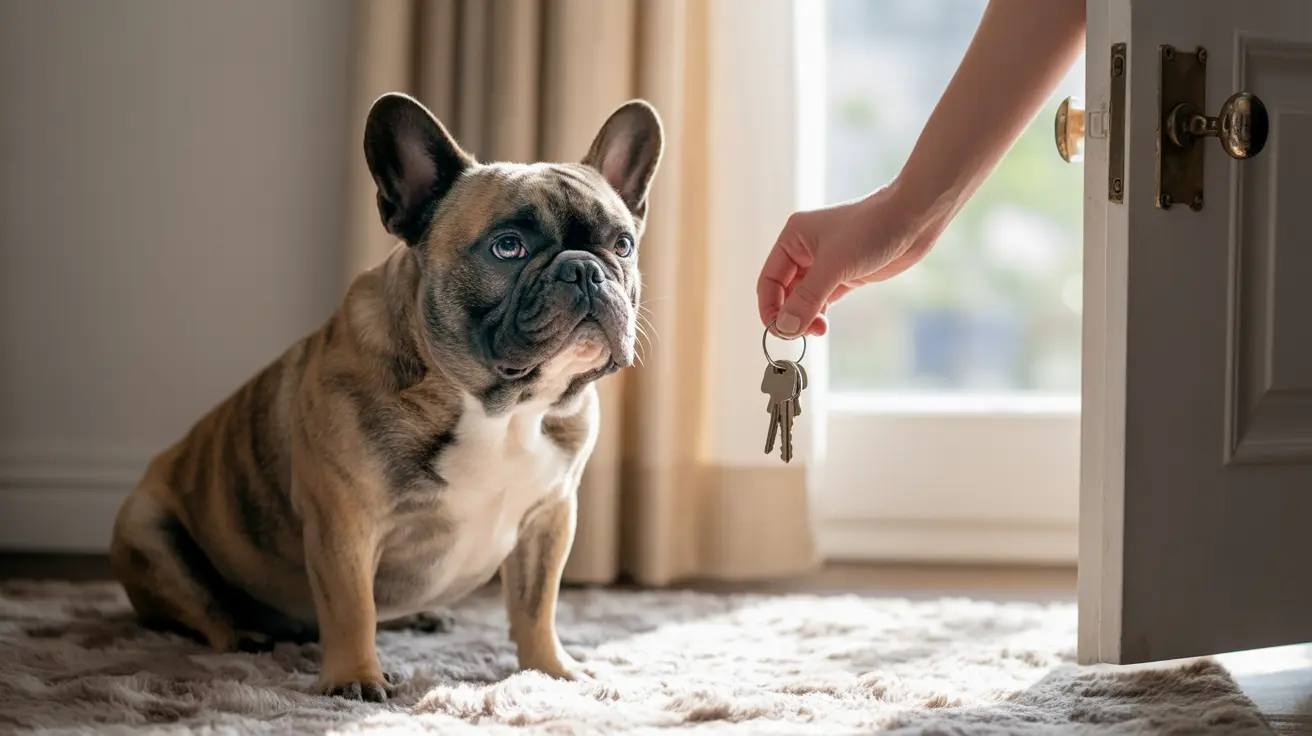As pet parents, we often wonder about the best way to leave our furry friends when heading out. The question of whether saying goodbye to your dog helps or hurts their emotional well-being is particularly relevant for those dealing with canine separation anxiety. Let's explore this topic with evidence-based insights and practical solutions.
Understanding how our departure routines affect our dogs' emotional state is crucial for maintaining their mental health and preventing behavioral issues. The way we handle goodbyes can significantly impact how our dogs cope with being alone.
The Science Behind Dog Goodbyes and Separation Anxiety
Research shows that dogs are incredibly attuned to their owners' emotional states and routine behaviors. When we make dramatic goodbyes, we may inadvertently signal to our dogs that our departure is something to worry about. This can trigger or worsen anxiety symptoms in sensitive dogs.
Studies indicate that dogs pick up on subtle cues that precede our departures, such as picking up keys or putting on shoes. These actions can become anxiety triggers if consistently paired with emotional farewells.
The Right Way to Say Goodbye to Your Dog
Experts recommend keeping departures low-key and matter-of-fact. Instead of lengthy, emotional goodbyes, opt for a brief, calm acknowledgment before leaving. This helps normalize the departure process and reduces your dog's stress response.
Consider these effective departure strategies:
- Maintain a neutral tone and calm demeanor
- Avoid excessive petting or attention
- Keep goodbyes brief and consistent
- Create positive associations with departure cues
Creating a Positive Departure Routine
Establishing a healthy goodbye routine involves more than just the moment of departure. Start by implementing these practices:
Before Leaving
- Exercise your dog to reduce excess energy
- Provide engaging toys or puzzle feeders
- Create a comfortable, safe space
During Departure
- Keep emotions in check
- Use a simple, consistent phrase
- Avoid making a fuss
Prevention Strategies for Separation Anxiety
While the goodbye ritual is important, preventing separation anxiety requires a comprehensive approach. Focus on building your dog's independence through:
- Gradual desensitization to departure cues
- Practice sessions with short absences
- Positive reinforcement training
- Environmental enrichment
- Regular exercise and mental stimulation
Professional Support and Treatment Options
For dogs with severe separation anxiety, professional intervention may be necessary. Certified animal behaviorists can develop customized treatment plans that may include:
- Behavior modification techniques
- Anti-anxiety medications when appropriate
- Environmental modifications
- Structured training programs
Frequently Asked Questions
Does saying goodbye to my dog before I leave help or worsen separation anxiety?
Saying a brief, calm goodbye is generally acceptable, but emotional or lengthy farewells can increase anxiety. The key is keeping departures low-key and consistent to avoid heightening your dog's stress response.
What are the most effective ways to reduce my dog's anxiety when I leave the house?
The most effective strategies include regular exercise, providing engaging toys, maintaining consistent routines, and gradually desensitizing your dog to departure cues. Professional training may be necessary for severe cases.
Should I make my departures and arrivals calm or exciting for my dog with separation anxiety?
Keep both departures and arrivals calm and understated. Exciting greetings or goodbyes can reinforce anxiety by making these transitions seem more significant than they should be.
Can giving my dog attention or petting before I leave actually help them feel calmer?
Excessive attention or petting before departure often increases anxiety rather than reducing it. Brief, calm interaction is preferable to emotional displays of affection when leaving.
How can I tell if my dog has separation anxiety versus just being bored when alone?
Separation anxiety typically involves immediate distress upon departure, including excessive vocalization, destructive behavior, or inappropriate elimination. Boredom behaviors usually develop gradually and improve with increased exercise and enrichment.
Remember, every dog is unique, and what works for one may not work for another. Consistency, patience, and understanding are key to helping your dog feel secure when you're away.






